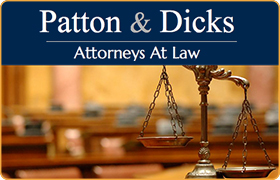Lake Hamilton RICO Act Lawyer, Florida
Sponsored Law Firm
-
 x
x

Click For More Info:
-
Patton & Dicks
465 East Main Street Bartow, FL 33830» view mapCriminal Defense, Criminal Appeals Real Attorneys Fighting For Real People
As Criminal and DUI Attorneys, we defend peoples rights in criminal courts. Find out how our services can help your situation.
863-225-3550
Not enough matches for Lake Hamilton RICO Act lawyer.
Below are all Lake Hamilton Criminal lawyers.
Larry Bryant
Other, Federal Appellate Practice, Family Law, Criminal
Status: In Good Standing Licensed: 42 Years
Larry Gene Bryant
Other, Federal Appellate Practice, Family Law, Criminal
Status: In Good Standing Licensed: 34 Years
Markeishia La'Toya Smith
Commercial Real Estate, Estate Planning, Criminal, Personal Injury
Status: In Good Standing Licensed: 8 Years
Ted Andre Lasseigne
Estate, Family Law, Divorce & Family Law, Criminal
Status: In Good Standing Licensed: 51 Years
James Marion Moorman
Lawsuit & Dispute, Federal Trial Practice, Government, Criminal
Status: In Good Standing Licensed: 53 Years
Michael Brian Murphy
Workers' Compensation, Family Law, Criminal, Credit & Debt
Status: In Good Standing Licensed: 49 Years

 About MeMore Info
About MeMore Info PracticesPatton & Dicks
PracticesPatton & Dicks
